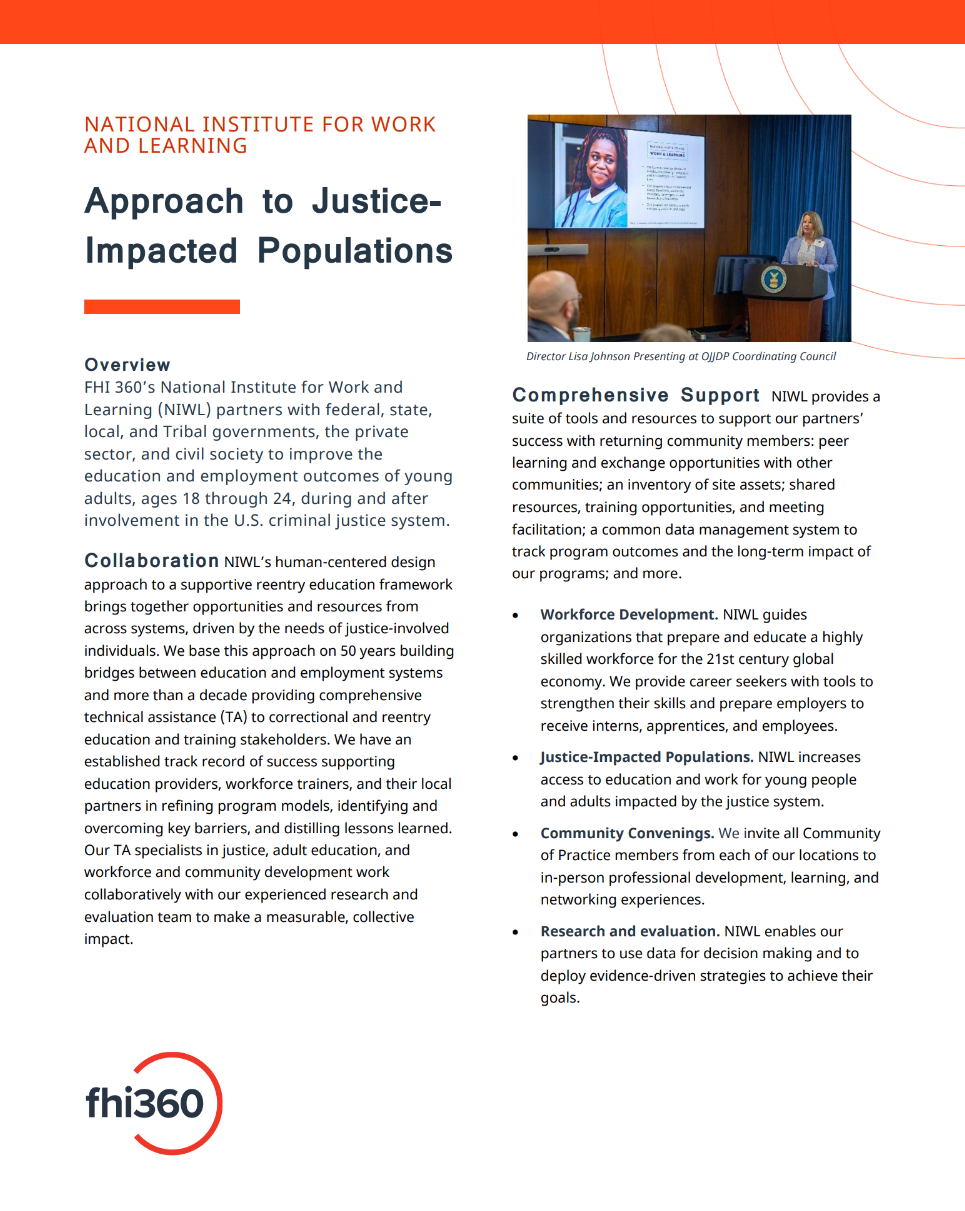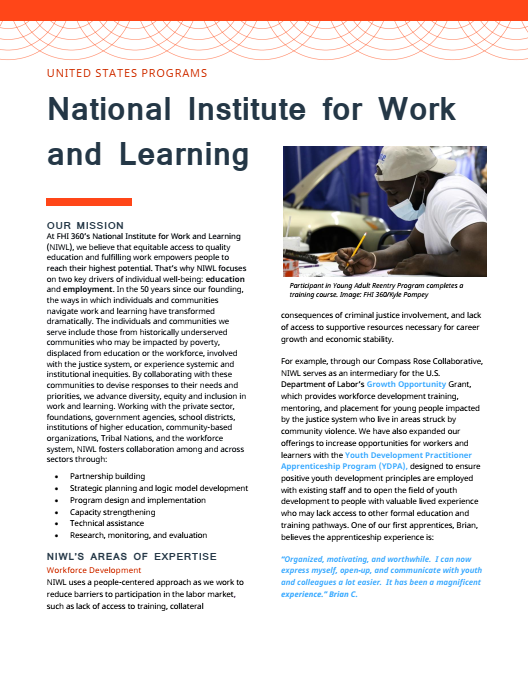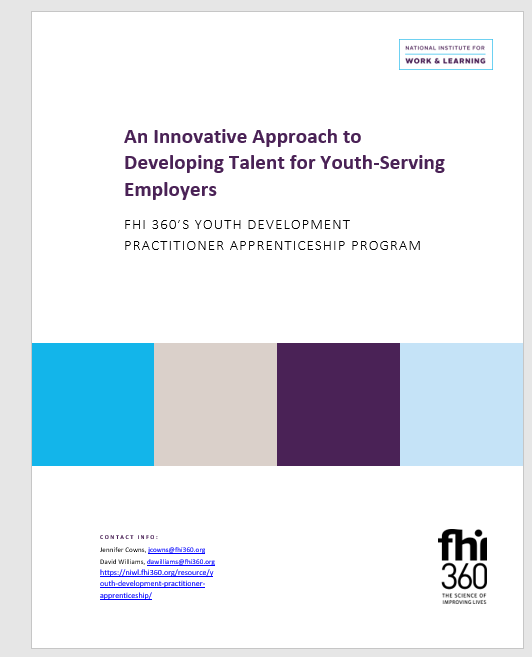FHI 360’s National Institute for Work and Learning (NIWL) provides support to education providers, workforce trainers, and their local partners to improve education and employment outcomes for youth aged 18-24 involved with the criminal legal system. Using a statistical lens, this document details the impact of NIWL’s five U.S. Department of Labor-funded Compass Rose Collaborative re-entry programs operating between 2017 and 2024.
Audience: Justice Professionals
For Second Chance month, we spoke to Olivia Murphy, who serves as senior career coach (and now youth program manager) for The Spot: Young Adult Opportunity Center in Louisville, KY. The story highlights how KentuckianaWorks navigates the challenges of life after incarceration, and how their impact encourages people to embrace second chances.
Read the full story to learn more.
Breaking Cycles of Adversity explores how school-based prevention strategies foster educational success, strengthen social connections, and reduce interactions with the justice system. Culturally relevant approaches that promote positive decision-making can support healthy relationships, strengthen identity, and improve mental and physical health, which are critical protective factors against justice system involvement.
Read the full report to learn more.
Our work in 2024 highlights our pivotal role in workforce development across the country. In fulfilling our mission to advance solutions in education and workforce systems, we establish partnerships, expand economic opportunities through work-based learning, foster employee engagement, and provide a comprehensive spectrum of services for learning and workforce development.
Read NIWL’s 2024 Annual Report to learn more about our work to strengthen our partners and forge connections so that we can all reach our fullest potential.
Just looking for the highlights? Check out our 2024 Infographic.
Honoring the Past to Empower the Future reviews the landscape of holistic and inclusive approaches to trauma-informed and healing-centered care for youth as implemented by tribal governments and organizations. Approaches that incorporate medicinal practices and cultural values, focus on the healing power of empathy, draw on the wisdom of elders and spiritual leaders, and embrace the rehabilitative potential of community engagement help to promote an environment of healing, recovery, and growth. Read the article to learn more.
Tribal Healing to Wellness Courts have emerged as a promising community-based, culturally competent solution to disproportionate Native incarceration in the United States, drawing on the community to appropriately address the needs of justice-involved Native Americans. This review examines the disparities in Native incarceration in federal and state systems, as well as how these disparities can be addressed, including the role of Tribal Healing to Wellness Courts in effectively improving outcomes for participants.
Our work in 2023 highlights our pivotal role as an intermediary organization. In fulfilling our mission to advance solutions in education and workforce systems, we focus on bringing people together, listening to our partners and local leadership, fostering networks of support and providing a comprehensive spectrum of services for learning and workforce development.
Read NIWL’s 2023 Annual Report to learn more about our work to strengthen our partners and forge connections so that we can all reach our fullest potential.
Just looking for the highlights? Check out our 2023 Infographic.
FHI 360’s National Institute for Work and Learning partners with federal, state, local, and Tribal governments, the private sector, and civil society to improve the education and employment outcomes of young adults, ages 18 through 24, during and after involvement in the U.S. criminal justice system. Read this overview of our comprehensive services.
This fact sheet profiles the work of FHI 360’s National Institute for Work and Learning (NIWL), which focuses on two key drivers of individual well-being: education and employment.
FHI360’s Youth Development Practitioner Apprenticeship program offers employers the opportunity to recruit and train employees while giving back to the community and filling their talent pipeline. YDPA targets both existing professionals and opens options for new professionals with lived experience in the communities they serve. Occupations include youth service intake counselors, outreach workers, or justice reentry case workers among others.










